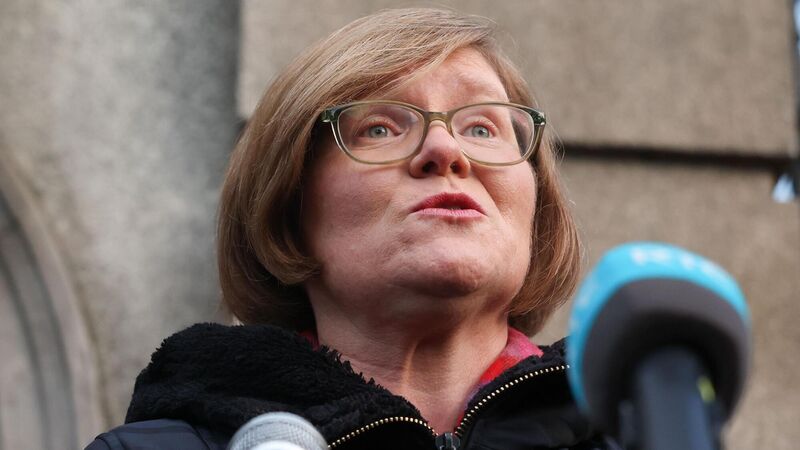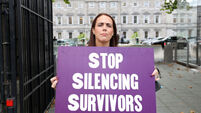Action needed 'at the highest level' to tackle sexual violence on college campuses

Orla O'Connor, director of the National Women’s Council, speaking outside Dáil Éireann at a vigil for Ashling Murphy. Picture: Sam Boal / RollingNews.ie
Government and higher education institutions have been urged to address sexual harassment and violence "at the highest level" after a landmark survey uncovered widespread evidence of such incidents on Irish college campuses.
More than 1,100 students disclosed experiences consistent with a description of rape, while 7% of those who answered questions on sexual violence said they had been forced into oral sex. A further 14% said they were subjected to oral sex while "incapacitated" and unable to give consent.













